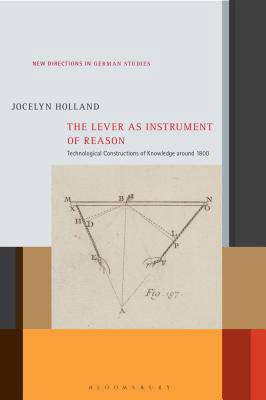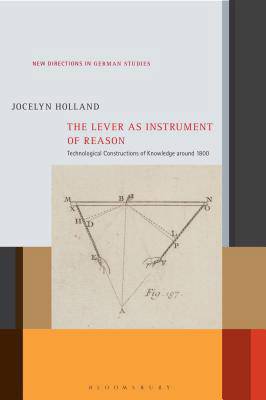
- Afhalen na 1 uur in een winkel met voorraad
- Gratis thuislevering in België vanaf € 30
- Ruim aanbod met 7 miljoen producten
- Afhalen na 1 uur in een winkel met voorraad
- Gratis thuislevering in België vanaf € 30
- Ruim aanbod met 7 miljoen producten
Zoeken
The Lever as Instrument of Reason
Technological Constructions of Knowledge Around 1800
Jocelyn Holland
€ 296,95
+ 593 punten
Omschrijving
The lever appears to be a very simple object, a tool used since ancient times for the most primitive of tasks: to lift and to balance. Why, then, were prominent intellectuals active around 1800 in areas as diverse as science, philosophy, and literature inspired to think and write about levers?
In The Lever as Instrument of Reason, readers will discover the remarkable ways in which the lever is used to model the construction of knowledge and to mobilize new ideas among diverse disciplines. These acts of construction are shown to model key aspects of the human, from the more abstract processes of moral decision-making to a quite literal equation of the powerful human ego with the supposed stability and power of the fulcrum point.Specificaties
Betrokkenen
- Auteur(s):
- Uitgeverij:
Inhoud
- Aantal bladzijden:
- 224
- Taal:
- Engels
- Reeks:
- Reeksnummer:
- nr. 25
Eigenschappen
- Productcode (EAN):
- 9781501346057
- Verschijningsdatum:
- 30/05/2019
- Uitvoering:
- Hardcover
- Formaat:
- Genaaid
- Afmetingen:
- 145 mm x 218 mm
- Gewicht:
- 385 g

Alleen bij Standaard Boekhandel
+ 593 punten op je klantenkaart van Standaard Boekhandel
Beoordelingen
We publiceren alleen reviews die voldoen aan de voorwaarden voor reviews. Bekijk onze voorwaarden voor reviews.








